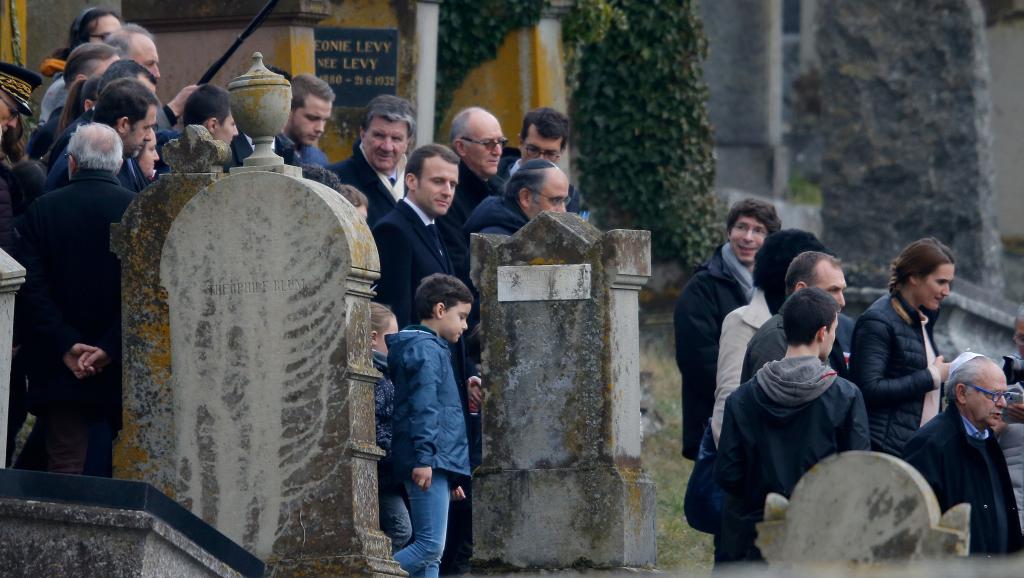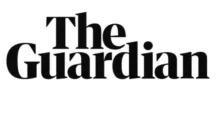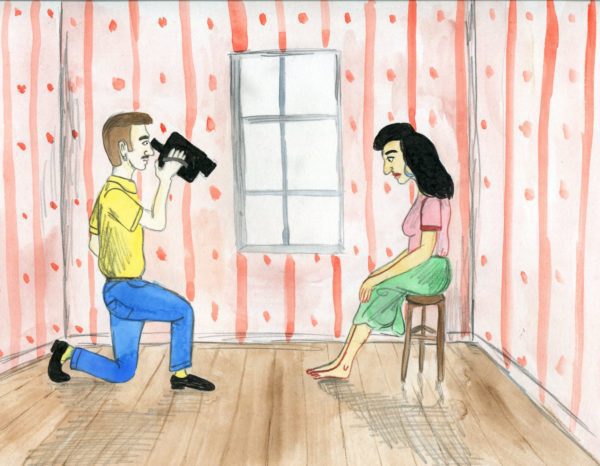By Mike WoodsIssued on 19-02-2019 Modified 20-02-2019 to 11:06
Rallies have taken place around France to denounce a recent rise in anti-Semitic acts, but there remains no consensus on the most effective way to confront or even describe the issue.

Richard Wagman, honorary chairperson of the French Jewish Peace Union19/02/2019 – by Mike Woods
Fourteen political parties, including President Emmanuel Macron’s Republic on the Move (LREM) party, signed a call to demonstrate from the French Socialist Party after the interior ministry reported a 74 percent rise in acts targeting Jewish people, symbols and buildings last year.
Prime Minister Edouard Philippe was among several government officials to attend the march on Tuesday in Paris.
Sacha Ghozlan, president of the Union of French Jewish Students, said he was planning to attend the rally as well, but warned it would only be worthwhile if it led to clear action.
“We need better measures to educate, to sanction those who incite hate against Jews, to hold large platforms responsible for what happens on the Internet and social networks and to ensure victims of anti-Semitism will be better received in the justice system,” Ghozlan told RFI on Tuesday morning.
“I’m calling on the government to declare a state of emergency in regard to anti-Semitism and take all of these measures into account.”
Debates over ‘old’ and ‘new’ anti-Semitism
The far-right National Rally (RN) led by Marine Le Pen was not invited to the protest and said it would organise its own event.
Philosopher Alain Finkielkraut, who faced protesters yelling “dirty Zionist” and “France belongs to us” on the sidelines of a Yellow Vest demonstration on Saturday, underlined that fact as he questioned the rationale for the rally.
“It’s a problem, because all republican parties should be invited,” Finkielkraut told France Info television on Monday, adding the RN represented “a considerable number of voters” and had shown “at least an apparent rupture between Marine Le Pen and her father”, Jean-Marie Le Pen.
“It’s a mobilisation against, if I dare to say it, the old anti-Semitism, the one we love to hate,” Finkielkraut said. “This is not what was confronting me in any case. Is this what is operating in a general way in France? I don’t believe so.”
The distinction between an “old” and a “new” anti-Semitism also appeared in a recent parliamentary effort to draft legislation that would criminalise anti-Zionism.
While Macron appeared to rule out the possibility of such legislation on Tuesday, there was enough concern over the issue to spurn a second rally against anti-Semitism in a different part of Paris.
“What the government, and what the Israeli state and their supporters outside of Israel say is that there’s a new form of anti-Semitism,” said Richard Wagman of the French Jewish Peace Union, which was participating in the other rally.
“What they call a new form of anti-Semitism is basically, to make a long story short, those who support the Palestinian people and their rights and their struggle, and more broadly, those who oppose imperialist intervention in the Arab world and those who oppose colonialism.”
The need for a parallel demonstration, Wagman argued, stems from what he called a government effort to manipulate the issue.
“The government is proposing legislation to make anti-Zionism illegal, pretending this is part of the struggle against anti-Semitism, but it has nothing to do with it,” he said. “Anti-Semitism is a form of racism, and Zionism or anti-Zionism is simply a political opinion.”







